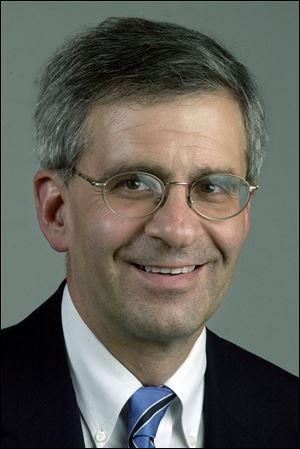
COMMENTARY
Can another senator go straight to the Oval Office?
5/18/2014
Shribman
Marco Rubio is a freshman Republican senator from Florida who is a virtual unknown outside political circles, but he is a possible presidential candidate. The other day, he won headlines by pronouncing himself ready to be chief executive of the greatest power on Earth.
If Mr. Rubio, who turns 43 this month, were elected president, he would have less than one term in the Senate. You might think of him as a drive-by senator, presumptuous in believing himself qualified for the top executive office.
But Mr. Rubio’s 70 months would be more than 50 percent longer than the amount of time Barack Obama spent in the Senate before he was elected to the White House.
All of which raises an important question: What does it take to be qualified to be president of the United States?
Here are some people who were, by ordinary reckoning, ready to be president:
● Sen. Robert Dole of Kansas, a disabled World War II veteran who was in Congress for more than a third of a century. He lost the 1996 election.
● Sen. John McCain of Arizona, a celebrated Vietnam prisoner of war who served on Capitol Hill for a quarter century when he won the Republican nomination in 2008. He lost to Mr. Obama.
● Al Gore, Jr., a Vietnam veteran and son of a senator who served in the House and Senate and as an unusually activist vice president for eight years. He lost the 2000 election.
● Walter Mondale, a state attorney general, senator, and vice president. In 1974, he made the extraordinary remark that he wasn’t ready to be president, regarded then as now as a comment of unusual maturity.
On the day he declared his candidacy for the 1984 campaign for the White House, he proclaimed: “I am ready to be president.” By any reasonable measure, he probably was. He lost 49 states.
In the postwar period, only three presidents have been indisputably qualified in the traditional way to hold the office they won.
One was Dwight Eisenhower, who commanded Allied forces in Europe — a dozen generals have become president — and had served as an Ivy League university president. One was Richard Nixon, who served in the House and Senate, and as vice president for two tumultuous terms. He was defeated in 1960 by a candidate regarded as unqualified in the customary manner, John Kennedy. But Mr. Nixon rebounded to win the White House eight years later.
And one was George H.W. Bush, who served in the House, was chairman of the Republican National Committee, director of the Central Intelligence Agency, chief U.S. diplomat in Beijing and at the United Nations, and then a two-term vice president.
The rest have been political gambles made by Americans.
Mr. Kennedy was among the least unqualified presidents of the period. He was a World War II veteran with six years in the House and eight in the Senate, but a slim record on Capitol Hill. He rates a slight advantage, by virtue of his slender foreign-policy experience, over four governors with no foreign policy experience: Jimmy Carter, Ronald Reagan, Bill Clinton, and George W. Bush.
The truth is that there is no formula for presidential success, or even for presidential electability.
The number of senators who have been elected to the White House is small (16). The number who have moved directly from the Senate to the presidency is miniscule: Ohio’s Warren Harding, Mr. Kennedy, and Mr. Obama. Together the record of this group is modest, at best.
The recent governors-turned-president at least boast executive experience, a background Mr. Obama lacked, which might explain some of the troubles he has encountered in his presidency.
Mr. Rubio and some of his amateur presidential rivals are more in the main current of American political life than is generally recognized. Two other freshman senators, Ted Cruz of Texas and Rand Paul of Kentucky, both Republicans, are regarded as legitimate presidential candidates.
So are four governors: Republicans Bobby Jindal of Lousiana, Mike Pence of Indiana, and Rick Perry of Texas, and Democrat Martin O’Malley of Maryland.
Most Americans outside their states have never heard of any of them. Then again, how many Americans had heard of Mr. Obama? He’s now the 44th president of the United States and the answer to a trivia question no longer.
David Shribman is executive editor of the Pittsburgh Post-Gazette.
Contact him at: dshribman@post-gazette.com